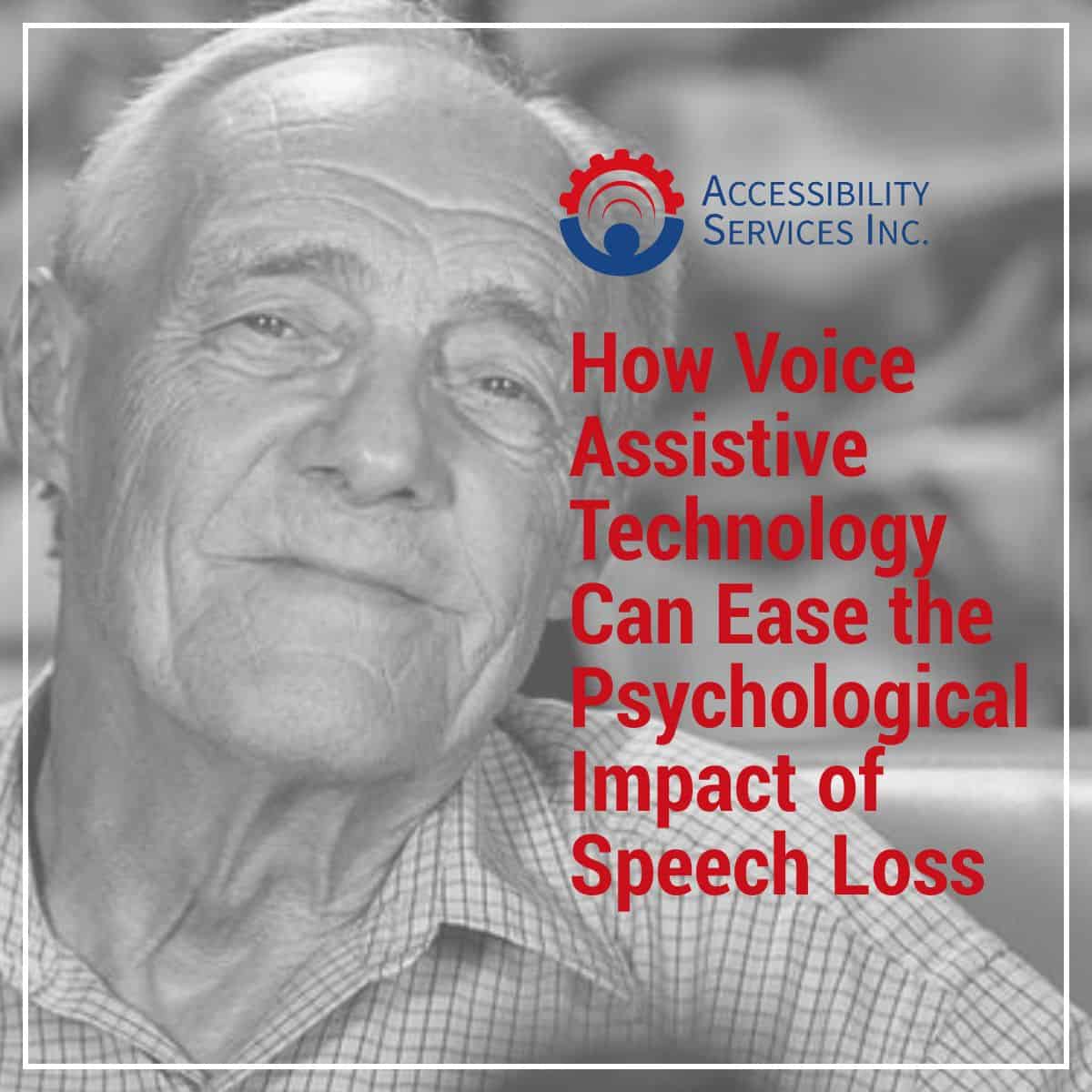How Voice Assistive Technology Can Ease the Psychological Impact of Speech Loss
(part one)
When a person is affected by a spinal cord injury or debilitating disease such as amyotrophic lateral sclerosis (ALS) both the individual and their family must confront the physical and emotional impacts of their new reality. ALS communication and communication devices for individual with quadriplegias equipped with voice assistive technology have revolutionized the way individuals who experience speech deficits and/or speech loss interact and communicate with the world around them.
This article is the first of a two-part series discussing how voice assistive technology can ease the psychological impact of speech loss. The first area we will address is augmentative and alternative communication (AAC). AAC is any form of communication other than speech. It can include anything from writing on a piece of paper, gestures and communication boards to technology such as a speech generating device. A speech generating device equipped with voice assistive technology allows an individual who is unable to speak to project a “voice” using an input method such as touch, sip and puff, eye gaze, or head tracking. This “voice” can be computer generated or it can be projected in the persons own voice thanks to voice/message banking which we will discuss in our next article.
Accessibility Services, Inc. is the premier provider and developer of assistive technology for individual with quadriplegias and individuals with debilitating diseases. Our signature autonoME is a combined environmental control unit (ECU) and speech generating device that also has full computing capabilities. The autonoME is available in hospital, residential and portable models. The new autonoME Hospital is the world’s first hospital ECU that not only offers AAC and environmental control tools, but seamlessly incorporates all available adaptive access methods and provides a fully integrated television experience, allowing patients to watch broadcast, streaming and cable television.
If you are a caregiver or professional that works with individual with quadriplegias and/or individuals with progressive, debilitating diseases such as ALS, we can help ease the psychological impact on patients and their loved ones. Give us a call to learn more today.





